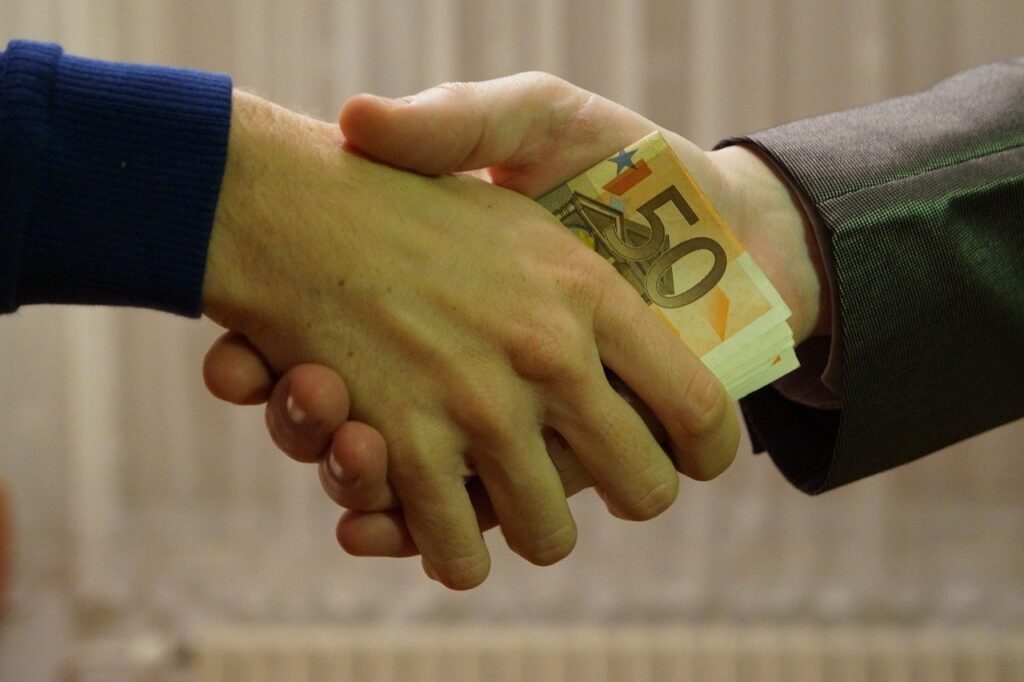When and why people pay bribes or use personal connections
How much you can increase the speed and quality of your service often depends on how much you can pay or who you know.
In the Global Corruption Barometer — Asia, we asked people about how and why they paid bribes or used personal connections when accessing public services across Asia.
.
Bribery vs. personal connections
Nearly one in five people who accessed public services like health care and education paid a bribe in the preceding year. Similarly, more than one in five people (22 per cent) who accessed public services used personal connections to receive the service they needed.
More than 1 in 5 people who used a public service in the previous 12 months used personal connections
India has the highest overall bribery rate (39 per cent) and highest rate of citizens using personal connections (46 per cent).
Following India, Indonesia and China have the second and third highest rates of people using personal connections (36 per cent and 32 per cent respectively).
Conversely, in Japan and Cambodia, a small minority of those who accessed public services used their personal connections, only 4 and 6 per cent respectively.
.
PERSONAL CONNECTION RATES, BY COUNTRY*
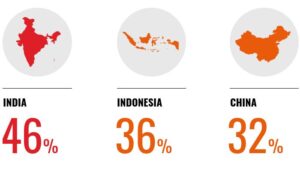
Percentage of public service users who used personal connections in the previous 12 months.
Which services see higher rates of corruption
While results show that the police have the highest bribery rate (23 per cent) and are the public service most likely to demand and receive bribes, our report shows that courts have a higher use of personal connections.
.
PERSONAL CONNECTION RATES BY SERVICE*
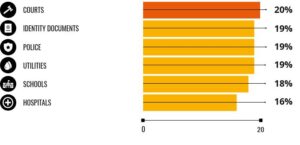
Percentage of people who used these services thanks to personal connections in the previous 12 months.
One in five citizens (20 per cent) who came into contact with the courts used their personal connections to receive a service or avoid a problem.
Similarly, nearly one in in five citizens (19 per cent) who came into contact with the police, identity papers and document offices or utilities, used their personal connections to receive a service.
Schools and hospitals have the lowest rates at 18 and 16 per cent respectively.
.
Why people pay bribes or use personal connections
When asked why they pay bribes or use personal connections, 24 per cent of those who paid bribes said they were asked to, while 30 per cent of those who used personal connections said they would not receive the service otherwise.
.
REASONS WHY PEOPLE PAY BRIBES*
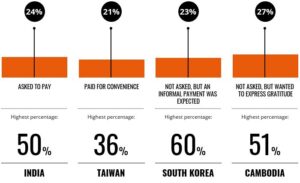
Percentage of people who pay bribes, by reason.
.
REASONS WHY PEOPLE USE PERSONAL CONNECTIONS*
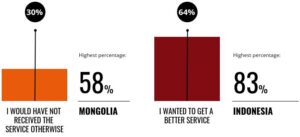
Percentage of people who used personal connections, by reason.
Age matters
In addition, young people who come into contact with public services are more likely to pay a bribe or use personal connections than older people. Those aged 18 to 34 are more likely to pay a bribe or use personal connections than people aged 55 or over.
.
A gendered practice
There are also gender differences in how people pay bribes or use personal connections.
For example, women are more likely to both pay bribes and use personal connections to obtain document services, like passports or driver’s licences.
At the same time, men are more likely to pay bribes for health services, utilities and to the police. Men are also more likely to use their connections to receive education, health and utilities services.
Compared to women, men are 2.5 times more likely to pay a bribe to the police.
.
24 November 2020, Published on Transparency International

